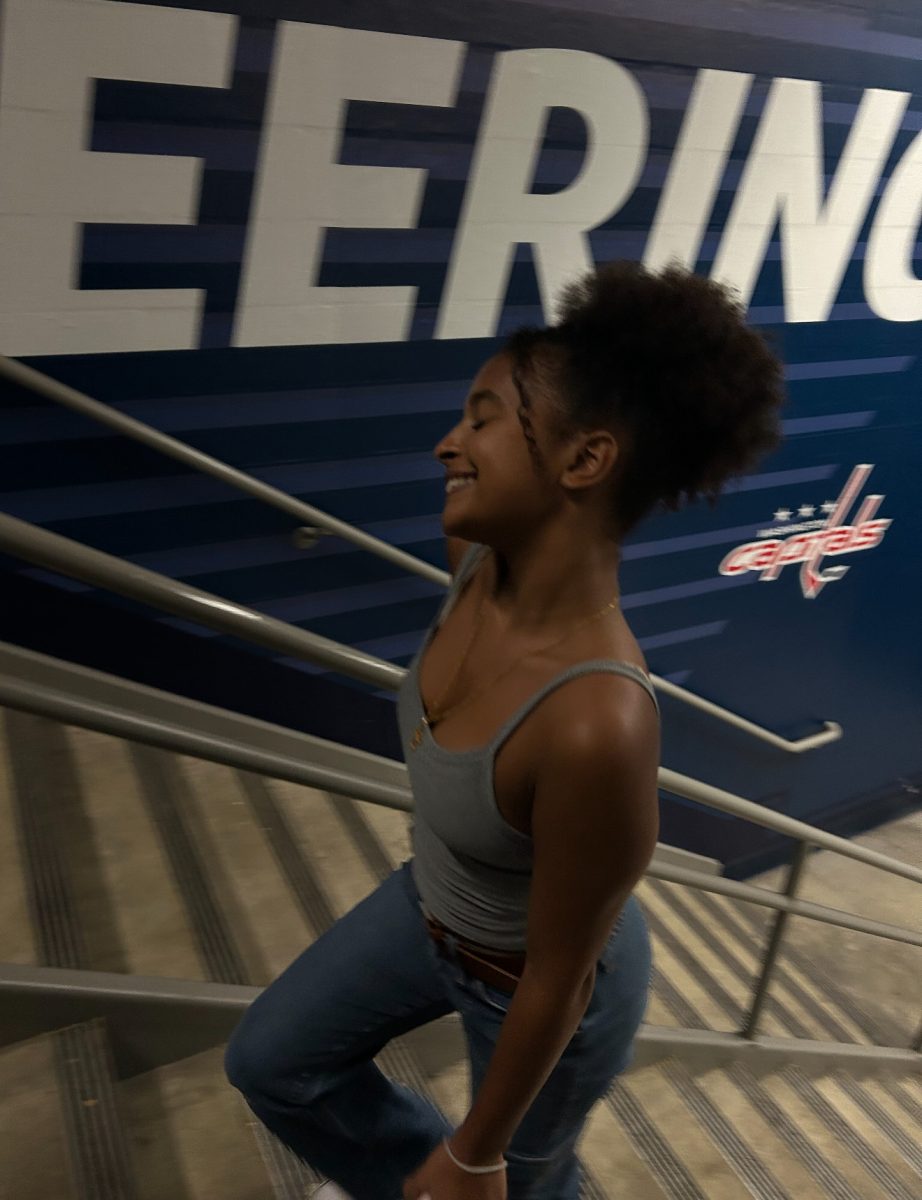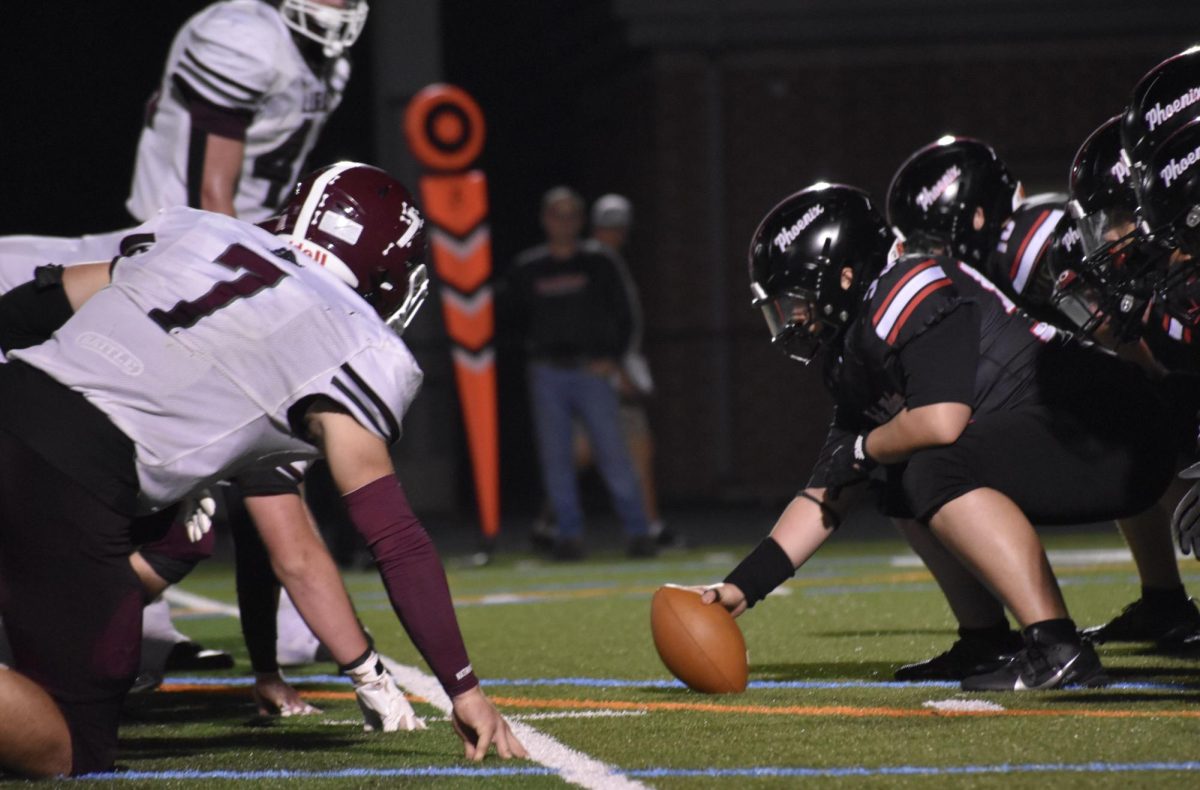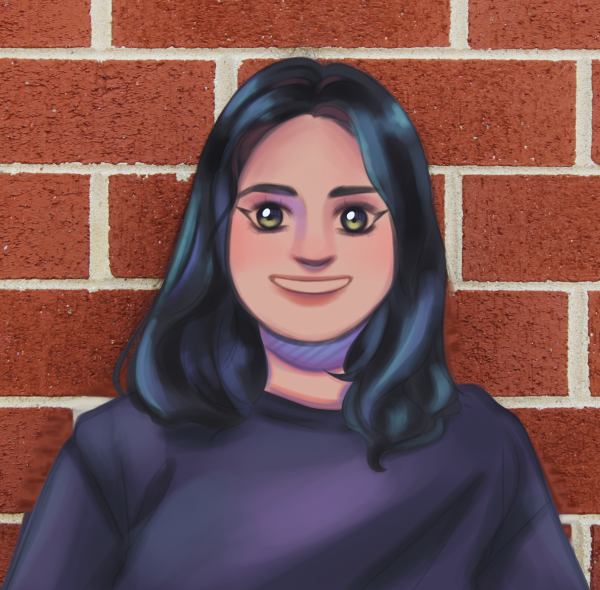As seniors leave high school, many of them reflect on the impact they’ve had on the people around them, and what good they left behind. For some, it may have been their photo on the wall of athletic achievement; for others, it could be a project their teacher shows to future students. Senior Fatima Qaderi wants to leave high school as a person others know they can rely on, no matter if they just need a pencil, or if they need someone to stand up for them.
Throughout her younger years, Qaderi has been faced with instances where she felt unseen and like she didn’t have a voice. “The one time I did use my voice — it was really a funny story,” Qaderi said. “In elementary school, we used to have a dancing unit, and I told my teachers I couldn’t do it because it was against my religion; they didn’t make me do it.”
However, not everyone was understanding. Forms of discrimination appeared more than once in her younger years. In 2016, when Qaderi was in fourth grade, a student told her that if Donald Trump won the election that was going on at the time, she would be deported because of her race. “Even though I had my own opinions, I couldn’t tell them to him because I wasn’t strong enough at that point to voice my opinions,” Qaderi said. Now, almost a decade later, if a student said the same thing to her she would laugh in their face and say, “I’ve heard that one before; like remix it a little or something.”
These experiences weren’t limited to just her elementary school years; they have carried through to her teenage life, but now, she faces difficulties with adults as well. “When I went on the Government Field Trip, I was the only one who got searched, especially when we first got into — I believe it was the Capitol,” Qaderi said. “Everybody walked through [the metal detector], and I saw a girl next to me who, I will say, was Caucasian, and it rang when she walked through, but they didn’t even ask her to [step aside]. When I went through, it rang again. I have a metal necklace and shoes with metal buckles, which they could clearly see, but they had someone search me first with a metal detecting rod, and then they had someone pat me down. I’m a high school student and then they thought I would have a knife in my shoe. That was kind of crazy.”
Despite being a teenage student just like everyone else, she was treated differently from many of her peers. After facing difficult situations where she felt like she wasn’t heard, she tried to use her voice to help others. As the tuba section leader in the band, and a senior member of the track team, Qaderi had people who relied on her for advice. “Fatima helped guide me through high school and figuring out my way through life as I got older; she’s helped open my eyes to new aspects of life, whether it be classes, band, culture, and more,” junior tuba player Kellan Mims said. “She’s truly been a kind and caring person towards me and has been a steady source of compassion and guidance.”
Although she’s now strong in expressing her opinions, she had to work hard to grow confident enough to use her voice when it mattered. It took her the first two years of high school to get more comfortable pushing herself to do things, like expressing her opinions, that seemed daunting, using the mindset that if nobody else would do it, she might as well. “I have known her since we were little, so I have seen her grow into a confident person,” senior Aishwarya Salur said. “She is not afraid to stand up for what she believes in and voice out her opinions, which I find to be very inspiring.”
Looking back at her journey growing up, Qaderi realized that people have to choose to be someone people can rely on, and too many people actively decide to be someone who discriminates against others. “After you get to a certain age, it’s completely up to you how you view your own life, how you view your decisions to others, and how you impact their life,” Qaderi said. “People consistently will view me differently because of how I look, and I know people who have like 10 times worse experience than me. I’m just a person living my life. How I look is something I can’t control; if I can’t control it you should be discriminating against it.”

























![The Phoenix varsity volleyball team lines up for the national anthem. “We were more communicative [with each other] during this game, and I feel like we kept our energy up, especially after the first set,” senior Jessica Valdov said.](https://theblazerrhs.com/wp-content/uploads/2024/10/DSC_0202-1200x800.jpg)










![Junior Alex Alkhal pitches the ball. “[I] just let it go and keep practicing so we can focus on our goal for the next game to get better as a team,” Alkhal said.](https://theblazerrhs.com/wp-content/uploads/2025/05/DSC_0013-1-1200x929.jpg)


















![Senior Fatima Qaderi grew into the person she wanted to become when she was younger and continues to work towards growing more confident in using her voice when it matters. “I didn't get treated the way I wanted to be treated, and I realized that it wasn't just them treating me the wrong way, it was me treating me the wrong way,” Qaderi said. “I forced them to like to look at me in a way where I'm someone who needs to be respected; they can't just disregard me, they can't just look over me because I have a different opinion, because I'm a woman, because I'm Afghan, because I'm Muslim, or whatever. It just took going through different experiences to figure out how [I wanted to] be heard.” Photo courtesy of Fatima Qaderi.](https://theblazerrhs.com/wp-content/uploads/2024/04/IMG_3870.jpeg)

